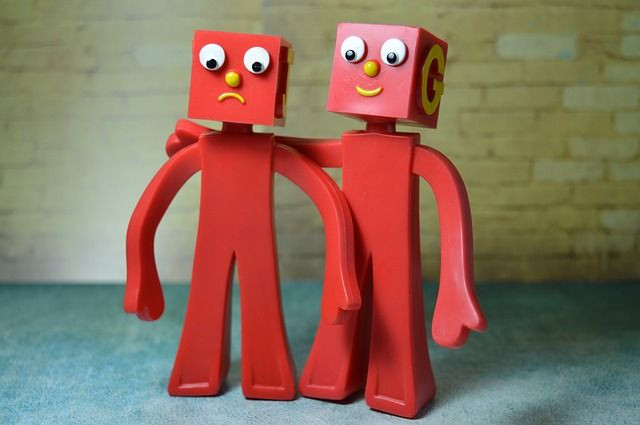Depression In Relationships: 4 Ways To Help Your Partner Beat The Blues, Backed By Science

Most of us have experienced bouts of sadness over a breakup or the loss of a loved one. We feel depressed and disconnected from the rest of the world, but eventually feel better over time. For others, depression persists, and makes everything look bleak, including relationships.
Researchers at the University of Alberta suggest showing more love can help ease our partner's stress as they deal with depression symptoms.
"Efforts from a partner to help alleviate stress may prevent the development or worsening of mental health problems and, in fact, could help keep the relationship healthy," said Matthew Johnson, study author, relationships researcher, and a professor in the U of A's Faculty of Agricultural, Life and Environmental Sciences, in a statement.
Read More: Depressed People May Possess Evolutionary Advantage
A 2016 study in the Journal of Social and Personal Relationships highlighted the impact mental illnesses, such as depression, can have on a relationship by interviewing a total of 135 couples, in which either one partner, or both, had a history of depression. Researchers noted one partner's depressive symptoms can trigger the other's, or couples may experience struggles in communication or sex. However, these couples remained hopeful, and focused on the way mental illness has brought them closer.
For example, a husband whose wife has major depression wrote:
"More often, I have strong feelings of love and support for my spouse, and feelings of fulfillment and satisfaction when I am able to help her feel better."
In a new study, published in Developmental Psychology, the researchers observed over 1,400 couples surveyed annually for six years for feelings of depression, self-esteem, and mutual support.
They found helping your partner through depression not only helps improve their future mental health, but also boosts their own self esteem.
Similar to previous research, men's feelings of self-esteem got a boost from supporting a depressed partner. These men felt better about themselves when they gave their partner support. This led to women receiving support from their partner to increase their self-esteem and reduce feelings of depression in the future.
Read More: 4 Surprising Benefits Of Anxiety And Depression
The researchers noted women with higher-self-esteem and men with fewer symptoms of depression received more support from their partners during stress. High cortisol levels take a toll on physical and mental health, including close relationships; a supportive partner during those times is so "impactful and long-lasting" according to Johnson.
Johnson explains someone with depression or low-self-worth may lash out when a partner offers support, reaffirming their feelings of depression and helplessness.
He suggests to offer "invisible support."
"Studies suggest offering support your partner may not even be aware of, but would still be a helpful gesture, like taking care of a sink full of dirty dishes they haven't seen yet. You can offer support, just don't draw attention to it," said Johnson.
Other ways include listening to depressed partners with empathy, and helping with day-to-day tasks like planning meals, or driving the kids to school.
It's important to realize your loved one isn't just sad — depression is like an affliction that can come out of nowhere. It can cripple a social life; cause physical pain, and even take control of someone's life. Those with depressed partners can offer support in a variety of ways that do not include antidepressants.
Go Outdoors
Going for a walk could be exactly what your partner needs to boost their mood. A 2014 study in Ecopsychology found getting a breath of fresh air and walking the depression off could make people feel better. Researchers found people reported a happier mood and a more positive outlook just after 30 minutes of walking outside. A simple walk around the park can help your partner get out of a depression episode.
Exercise
Exercise is good for the heart and good for the mind. A 2004 study found exercise lessens mild to moderate depressive symptoms better than antidepressants. Exercise releases feel-good brain chemicals, including neurotransmitters, endorphins and endocannabinoids to ease depression; reduce immune system chemicals that can worsen depression; and increase body temperature, which may have calming effects, according to the Mayo Clinic. Exercise is also an excellent way to help your partner take their mind off worries. It's a distraction that can get them away from repetitive bad thoughts that feed depression. Informal exercise programs, like a walk, help improve mood.
Adopt An Attitude of Gratitude
When your partner has the blues, help them look at the positive things in life. Counting blessings, being optimistic, random acts of kindness, among others, have a significant effect on depression, according to a 2011 study. This is known as "positive activity interventions." They teach depressed people to boost their positive cognitions, emotions, and behaviors.
See Also:
Published by Medicaldaily.com



























